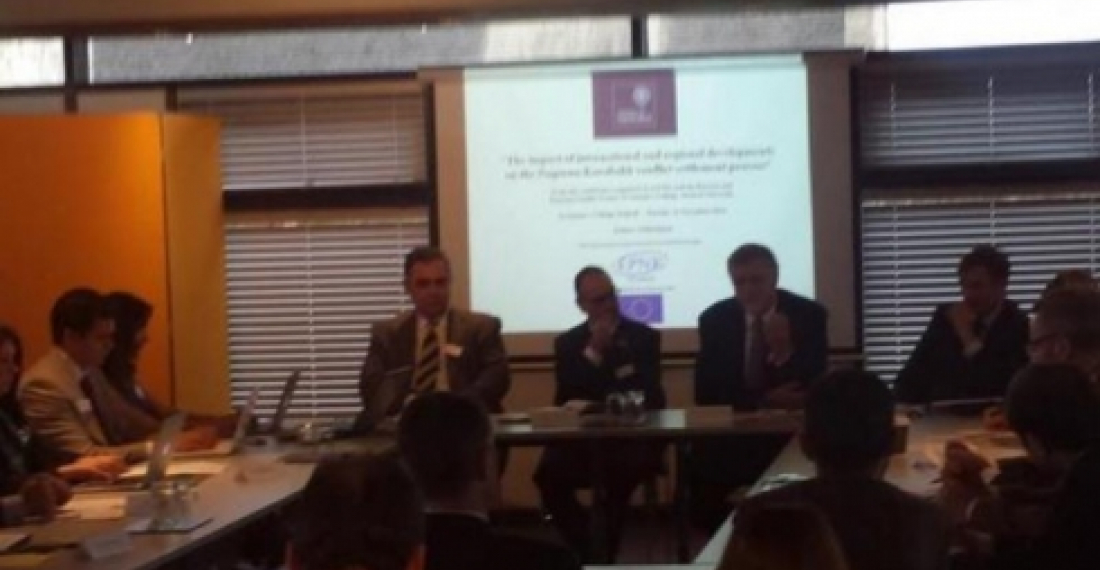Armenian and Azerbaijani diplomats, academics and civil society activists, and counterparts from a number of European countries, met in Oxford on Tuesday, 11 November at a conference with the theme "The impact of international and regional developments on the Nagorno-Karabakh conflict settlement process."
The one-day conference was organised by LINKS and the Russia and Eurasia Studies Centre, St Antony's College, Oxford University.
Since the start of the conference co-incided with the eleventh hour, of the eleventh day of the eleventh month - the proceedings at the conference started with a two minute silence to remember all those who died in wars in the last century.
Speakers at the conference included, Professor Dan Healey, Director, Russia and Eurasia Studies Centre, St Antony's College, Oxford University; Dennis Sammut (LINKS and Oxford University); Dr Walter Kemp, (International Peace Institute, Vienna); Ambassador Herbert Salber, (European Union Special Representative for the South Caucasus and the Conflict in Georgia). Professor Roy Allison (RESC, Oxford University) Richard Giragosian (Regional Studies Centre Yerevan), Ambassador Khazar Ibrahim (Permanent Representative of Azerbaijan to NATO), Amanda Paul (European Policy Centre, Brussels). Dr Sabine Freizer (Atlantic Council Eurasia Centre, Washington DC); Avaz Hasanov (Society for Humanitarian Research, Baku); Masis Mayilyan (Public Council for Foreign and Security Policy, Stepanakert); Professor Neil Macfarlane (International Relations Department, Oxford University); Dr Laurence Broers (Caucasus Program Associate, Conciliation Resources, London); Orkhan Akbarov, (Council of Azerbaijani Community of Nagorno-Karabakh, Baku); and Craig Oliphant (Saferworld, London).
source: commonspace.eu
photo: The openiong of the conference on the Nagorno-Karabakh conflict held in Oxford on 11 November 2014.







